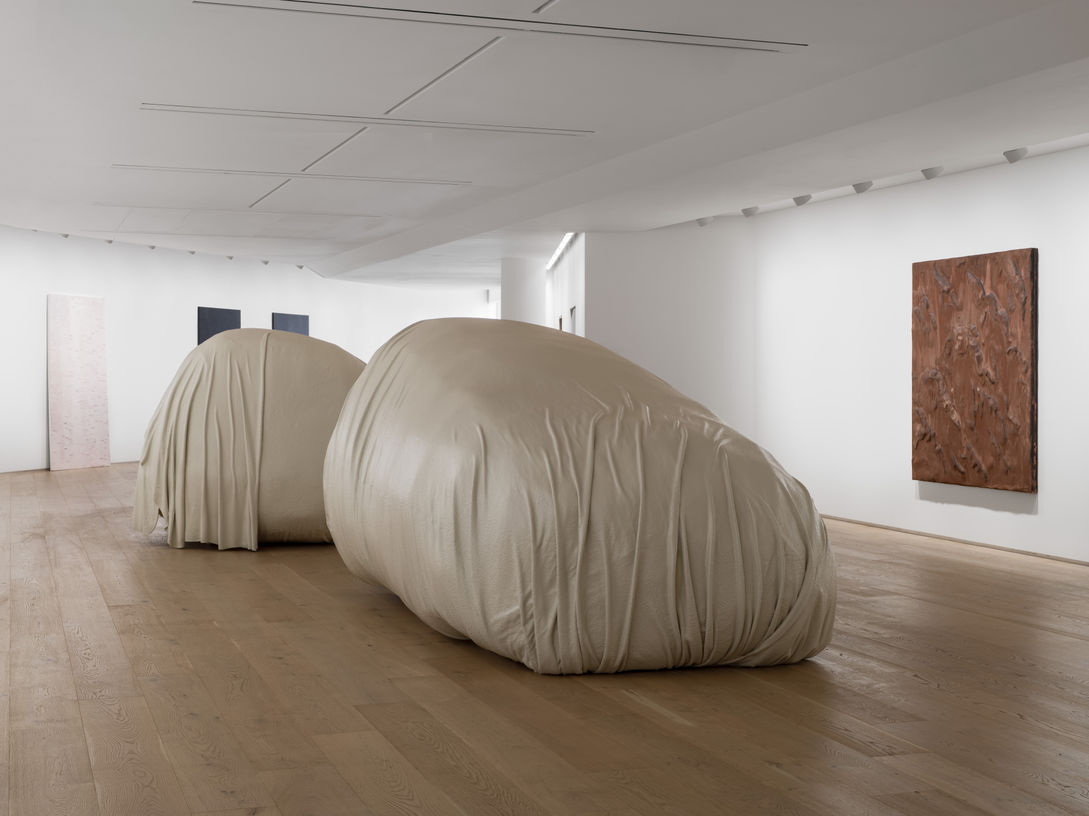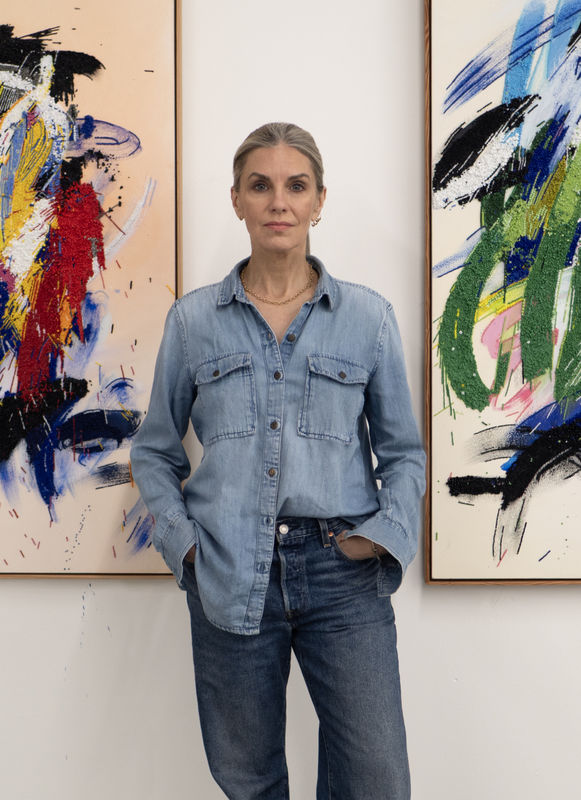Not Vital Heads
22 May – 26 July 2014
Traversing the hinterland between abstracted and representational forms, HEADS was a new body of work by Not Vital that also represented significant elements of Vital’s artistic progression since creating a studio in China in 2008. The depiction of heads, be it human or otherwise, had recurred often throughout Vital’s practice, both in sculpted, drawn and painted form – including a remarkable series of painted portraits that Vital had been working on since the early months of his time in China.
In December 2009, Vital began the painted body of work that foreshadowed these sculptural forms. The artist began to execute a dynamic series of painted portraits, very simply focusing on those figures that surrounded him everyday – his assistants, friends and fellow artists in the so-called ‘art village’ of Caochangdi, on the outskirts of Beijing. In these portraits, Vital chose to cut out other bodily parts altogether, simply focusing on the head. With a dark, monochromatic emphasis that mirrors HEADS, Vital rendered his painted portraits swiftly and sketchily, yet creating a remarkably potent likeness of the sitter. Although these sculptures remain vastly removed from the paintings in terms of their smooth, polished finish, they shared a strongly reduced use of descriptive features and demand close scrutiny. Similarly, these sculptural HEADS were some of his most abstracted forms to date, at times possessing only subtle and scarcely expressed facial features which deny individualised identification, instead bearing a weighty, iconic universality of being. This series encompassed more identifiable depictions, including HEAD: Li Gao (2013) and indeed the artist himself, HEAD: Self-Portrait (2013).
Presented without a base or plinth, the hollow sculptural forms were placed directly onto the floor, grounded into the earth. This pared down means of presentation further reinforced the impression of these works being reduced to their simplest state of existence. The paucity of detail across the HEADS also recalled the earliest types of artistic depictions, the simplified representational articulations of prehistoric painted and sculptural forms. Yet despite these allusions to such archaic art historical predecessors, the artist rendered this commanding depiction with an aesthetic finish that undoubtedly belongs to this age. The highly polished PVD (Physical Vapor Deposition) coating of the sculpture resulted in a lustrous, mirror-like surface that encompassed both convex and concave sections. Creating a simultaneous ‘push/pull’ force, at certain points the surface seemed to draw in reflections in a vortex effect, whilst at other points, these are abruptly cast outwards. The viewer was thus disconcertingly both drawn towards and lost in the countless reflected highly polished planes of the spherical form, and yet simultaneously also repelled from the sculpture by its cool, clinical finish. It is such effects, generated by new advances in material technology, which fascinate the artist. The ease with which these can be explored and experimented with in industrialised China remains a continuing source of interest to Vital.
The physical presence of these sculptures created a particularly distinct atmosphere within the space they inhabit. Their solemnity created a silence that enveloped the surroundings, they possessed an air of strong authority yet did not overbear the viewer. Disarmingly, they seemed to refute categorization and did not appear to belong to any set time and space. Both individually and collectively, they simultaneously recalled primeval iconic figures of the past, though their mass and weight placed them firmly in the present and yet also, with their technologically advanced finish, they could belong to a time of the future. Although one could approach the sculptures closely, there was a feeling that they would always remain at some immeasurable distance away.


















































































































































































